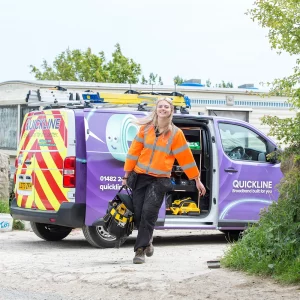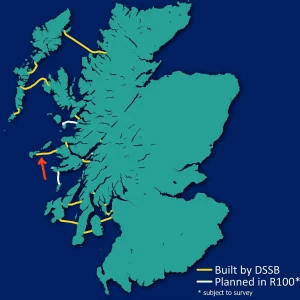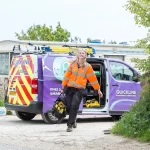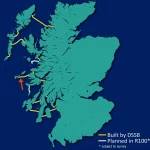Sponsored Links
Ofcom Study Finds UK Mobile Operators Provide Broadly Accurate Coverage Maps
Posted: 10th Aug, 2011 By: MarkJ

 The communications regulator, Ofcom UK, has today published updated research into mobile not-spots and discovered that related 2G and 3G mobile phone and Mobile Broadband operators generally manage to provide "reasonably accurate" coverage data for outdoor predictions.
The communications regulator, Ofcom UK, has today published updated research into mobile not-spots and discovered that related 2G and 3G mobile phone and Mobile Broadband operators generally manage to provide "reasonably accurate" coverage data for outdoor predictions.Furthermore 9 out of 10 consumers found mobile coverage checkers both easy to use and relevant, while 8 in 10 felt that they were useful in making supplier comparisons. Sadly only a small portion of consumers actually knew that such checkers existed (3 in 10).
Ofcom Statement
Mobile network operators predict the signal strength of their networks using 'propagation models'. These models form the underlying data for coverage checkers. We commissioned a study in Devon to measure the signal strength of mobile network operators in order to understand how accurate their models for estimating mobile coverage are.
For outdoor coverage, the study found that measured signal strengths were generally in line with the operators' predictions. This led our consultants to conclude that the operator propagation models are reasonably accurate. 2G readings (suitable for voice and text) were generally conservative on average. The consultants noted more variability for 3G [ Mobile Broadband ] readings (suitable for data and mobile internet).
Mobile network operators predict the signal strength of their networks using 'propagation models'. These models form the underlying data for coverage checkers. We commissioned a study in Devon to measure the signal strength of mobile network operators in order to understand how accurate their models for estimating mobile coverage are.
For outdoor coverage, the study found that measured signal strengths were generally in line with the operators' predictions. This led our consultants to conclude that the operator propagation models are reasonably accurate. 2G readings (suitable for voice and text) were generally conservative on average. The consultants noted more variability for 3G [ Mobile Broadband ] readings (suitable for data and mobile internet).
Ofcom notes its belief that there is "no single 'right' way of estimating coverage" and wasn't surprised to find a degree of difference in modelling between operators. All operators were in fact deemed to have provided "broadly accurate" information.
As a result the regulator has concluded that "further work to harmonise modelling processes may not be proportionate". However Ofcom did come up with a number of recommendations and has already begun work to facilitate their implementation.
Ofcom's Mobile Coverage RecommendationsOfcom's related research into the country's national Mobile Broadband speeds (full details) recently discovered that the average mobile internet download speed is just 1.5Mbps (Megabits per second); rising to 2.1Mbps in areas of "good 3G coverage". By contrast the national average speed for a fixed line broadband ISP connection is 6.8Mbps. Further studies are being conducted.
* Operators should provide coverage checkers at the point of sale (some already do this, others do not).
* Operators should work with third parties, such as comparison websites, to make their coverage information more comparable and widely available to consumers.
* Operators should ensure that consumers affected by changes in coverage levels, when they already have a service, are given prior notice.
ISPreview.co.uk's own Top Tips for Improving Mobile-Broadband Performance article covers this same subject and offers some useful advice. Ofcom has also updated its own highly simplified guide - Maximising your mobile coverage.
Ofcoms Mobile Coverage for Consumers Report
http://stakeholders.ofcom.org.uk/market-data-research/telecoms-research/mobile-not-spots/mobile-coverage-for-consumers/
Search ISP News
Search ISP Listings
Search ISP Reviews
Latest UK ISP News








Cheap BIG ISPs for 100Mbps+
150,000+ Customers | View More ISPs
Cheapest ISPs for 100Mbps+
Modest Availability | View More ISPs
Latest UK ISP News
Helpful ISP Guides and Tips
Sponsored Links
The Top 15 Category Tags
- FTTP (6885)
- BT (3911)
- Politics (3108)
- Business (2814)
- Openreach (2690)
- Building Digital UK (2530)
- Mobile Broadband (2514)
- Statistics (2154)
- FTTC (2150)
- 4G (2125)
- Virgin Media (2053)
- Ofcom Regulation (1794)
- 5G (1771)
- Fibre Optic (1615)
- Wireless Internet (1614)
Sponsored
Copyright © 1999 to Present - ISPreview.co.uk - All Rights Reserved - Terms , Privacy and Cookie Policy , Links , Website Rules































